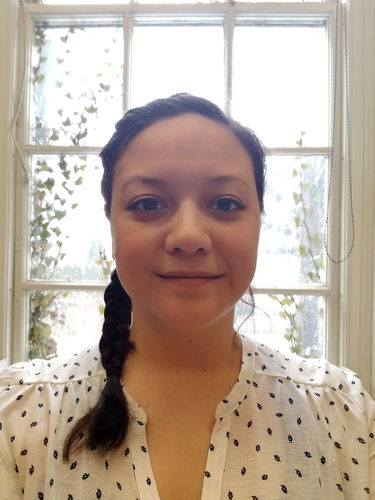
|
|
||
|
With the widespread continuation of social distancing recommendations, we realize that it is difficult for classrooms to share resources among students. That's why we've been working toward making our learning tools available online, starting with our graphic novel, #foodcrisis.
This depiction of a world that has experienced a major drought explores the politics, science, and ethical questions that surround an international event of this magnitude. The story is based on historical events that have caused disruptions to our food systems, like the Dust Bowl and the Great Irish Potato Famine, and is supported by 13 background essays on the research that went into writing the novel. At the same time unsettling and somewhat reassuring, the plot draws connections to current events while championing the resiliency of the human spirit that has helped us push through in challenging times. What lessons can be learned from food crises of the past, and what can we learn from our situation now?
Download a pdf copy of #foodcrisis
Coming Soon
We are working to make even more of our resources available online in the coming weeks. Stay tuned for a printable version of our card game, as well as two new podcast series! If you would like to be notified when new resources are released, we welcome you to join our mailing list below:
|
||
|
||
|
||
|
||
|
|
|
||
|
Due to climate change and the development of new technologies, scientists predict that we will be able to do agriculture in northern lands that have, until now, been unable to support farming. While the potential to bring down food costs in isolated northern communities and increase global food production could lead to improved food security, disturbing these previously unfarmed northern soils also has its risks. Learn more about the potential benefits and risks of introducing agriculture to the far north, and possible alternatives in the latest addition to our video series.
|
||
|
||
|
||
|
||
|
|
|
||
|
Part of the challenge of Feeding 9 Billion is ensuring everyone has equal access to the types of food that make up a healthy diet. However, although the world currently produces enough calories per day for everyone to eat a full diet, consumer patterns have led to a mismatch between the types of food we produce and the types of food we should eat. Explore the benefits of producing a more nutritious balance of foods and what we can do to influence this in the next installment of the Feeding 9 Billion video series.
|
||
|
||
|
||
|
||
|
|
|
||
|
From improvements in monitoring animal health to more precise planting methods to increasing consumer confidence in the origin and treatment of the food they eat, technology is making waves in the world of agriculture. Join Evan and Malcolm Campbell, Vice President of Research at the University of Guelph, as they explore the benefits and limitations of a new generation of digital agricultural technologies.
|
||
|
||
|
||
|
||
|
|
|
||
|
Cattle. Pigs. Chickens.
Most of the world's protein comes from these three land-based species, but producing these species takes a lot of water, energy and land. How can we sustainably produce enough nutritious protein to feed the growing needs of our population?
Watch our new illustrated video to learn more!
|
||
|
||
|
||
|
||
|
|
|
|||||||||
|
Thanks for stopping by!
At Feeding 9 Billion, we study the future of food, including topics such as the digital agricultural revolution, the effects of climate change on agriculture, and sustainable food packaging solutions. We believe that these issues are relevant to everyone, and that education is key to creating global food systems that can feed 9 billion people by 2050.
One of our passion projects is creating accessible and engaging learning tools that will get people excited to learn about food security, and thinking critically about solutions. This website shares the results of that work. Take a look around, or check them out below!
We're always working on new materials, so keep checking back for more!
|
|||||||||
|
|||||||||
|
|||||||||
|
|||||||||
|

|
|
Mya Kidson 3 September 17, 2021 |

|
|
Rachel Lee 18 June 4, 2021 |

|
|
Vivian Ma 2 April 7, 2021 |
|
|
|
Nathalie Amyotte 2 March 15, 2021 |

|
|
Maya Nickle 1 November 30, 2020 |
|
|
|
Madeleine Arseneau 1 June 10, 2020 |